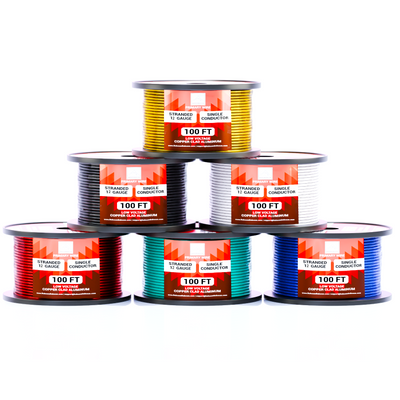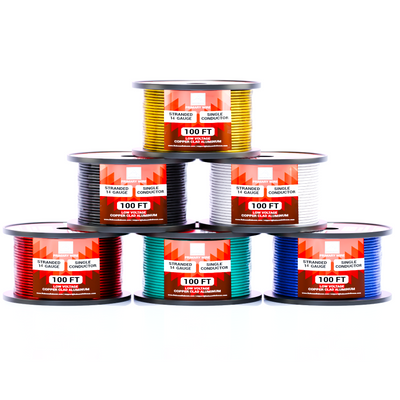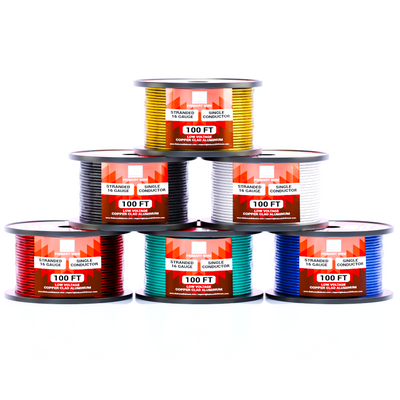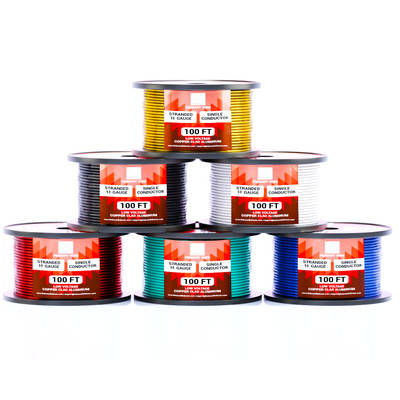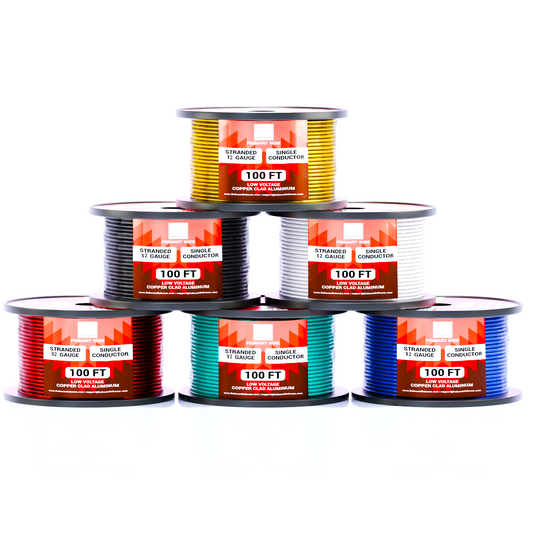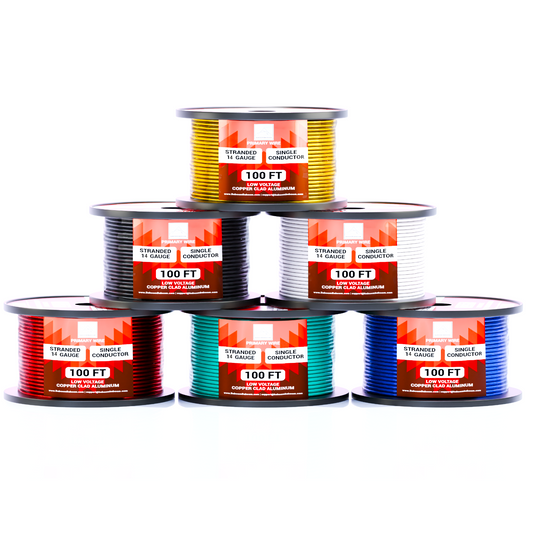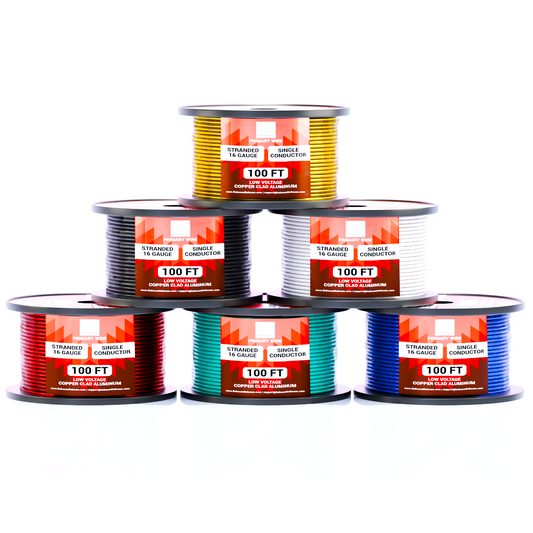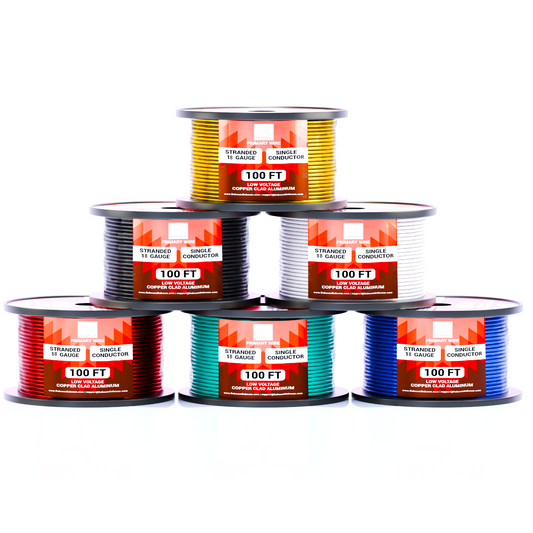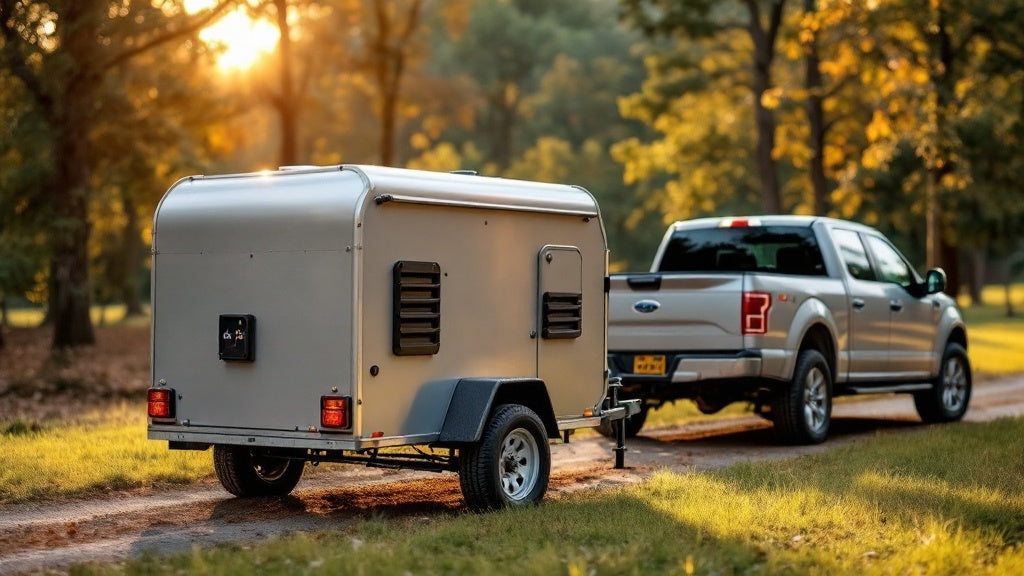
Can You Use Household Wire for Trailer Wiring? Pros & Cons
Share
Introduction
When it comes to trailer wiring, many DIYers wonder if they can use household wire instead of automotive-grade wire. While household wire may seem like a cost-effective and readily available option, it comes with significant advantages and drawbacks. In this guide, we'll explore whether household wire is a viable choice for trailer wiring, its pros and cons, and the best practices for safe and efficient trailer electrical system setups.
Understanding Household Wire vs. Automotive Wire
Household wire and automotive wire serve different purposes and are constructed differently:
- Household Wire: Designed for indoor electrical use, often solid core, and rated for AC voltage.
- Automotive Wire: Stranded core wire designed to withstand vibrations, exposure to moisture, and DC voltage applications.
Household wire is primarily used for residential and commercial electrical installations, where wires remain stationary within walls or conduits. Automotive wire, on the other hand, is designed to endure the continuous movement, vibration, and exposure to elements that trailers and vehicles encounter daily. This fundamental difference plays a crucial role in determining whether household wire is suitable for trailer wiring.

Pros of Using Household Wire for Trailer Wiring
While not the best option, household wire has some potential benefits:
1. Readily Available
Household wire is easy to find at hardware stores, making it an accessible option for quick repairs or temporary fixes. If you're in a pinch and need to restore trailer lights or another minor electrical function quickly, household wire may seem like a convenient solution.
2. Lower Cost
In some cases, household wire can be cheaper than specialized automotive wire, particularly if you already have some on hand. This can be tempting for those looking to cut costs on repairs or installations.
3. Sufficient for Non-Moving Parts
If you're wiring stationary parts of a trailer, such as interior lighting in a parked camper, household wire may work fine. In applications where the wire is protected from vibration and environmental factors, it may not degrade as quickly as it would in exposed trailer wiring systems.

Cons of Using Household Wire for Trailer Wiring
Despite a few advantages, using household wire for trailer wiring poses several risks and limitations:
1. Lack of Flexibility
Most household wire is solid-core, which is more prone to breaking under constant vibration. Trailers experience significant movement, making stranded automotive wire the better choice. A broken wire in a trailer’s electrical system can lead to safety hazards, malfunctioning lights, or even complete failure of critical functions such as brakes or turn signals.
2. Insulation is Not Weather-Resistant
Household wire insulation is not designed for outdoor use. Exposure to moisture, heat, and UV rays can degrade the insulation over time, leading to shorts and failures. Unlike automotive-grade wiring, which is coated with materials that resist oil, chemicals, and extreme weather conditions, household wire is vulnerable to the elements.
3. Not Rated for DC Automotive Use
Trailer wiring runs on a DC electrical system, which requires wire that can handle fluctuating voltage and amperage loads efficiently. Household wire is designed for AC and may not perform reliably in a DC system. The difference in electrical current properties can lead to overheating and potential electrical failure.
4. Higher Risk of Corrosion
The copper used in household wiring is often not treated to resist corrosion, whereas automotive wire is designed to withstand harsh environments. Over time, corroded wires can lead to increased electrical resistance, voltage drops, and even short circuits, making trailer lighting and braking systems unreliable.
5. Safety Concerns
Improper wiring using household wire can result in shorts, overheating, and even fire hazards. Automotive wire is specifically manufactured to reduce these risks. Electrical shorts can occur when household wire insulation breaks down, potentially causing sparks that can ignite nearby flammable materials or damage trailer components.

The Recommended Wire Gauge for Trailer Wiring
The gauge of wire you choose depends on the electrical load your trailer requires. Here’s a general guide:
| Wire Gauge | Recommended Use |
|---|---|
| 10 GA | Main power, battery charging, electric brakes |
| 12 GA | Running lights, brake lights, auxiliary power |
| 14 GA | Turn signals, tail lights |
| 16 GA/18 GA | Small marker lights or low-power accessories |
Using the correct wire gauge ensures efficient power delivery and reduces the risk of voltage drops that can impact trailer lighting and braking functions.
How to Properly Wire Your Trailer
If you're setting up or repairing trailer wiring, follow these best practices:
- Choose the right wire type – Opt for high quality CCA wire
- Use color-coded wires – This simplifies troubleshooting and future repairs.
- Secure the wires properly – Use zip ties and cable clamps to prevent wear from movement.
- Protect connections – Use heat shrink tubing or electrical tape to insulate exposed areas.
- Check for continuity – Use a multimeter to verify electrical connections before finalizing installation.
- Test the system – Ensure that all trailer lights, brakes, and auxiliary functions work correctly.

Conclusion
While household wire may seem like a quick fix for trailer wiring, it is not a reliable or safe long-term solution. The lack of flexibility, weather resistance, and proper electrical ratings make it a poor choice for mobile applications. Using household wire can lead to safety risks, including electrical failures, shorts, and fire hazards.
For the best results, investing in high-quality automotive wire ensures durability, safety, and proper functionality. With the right wiring setup, your trailer's electrical system will remain efficient and reliable for years to come.
Have you ever tried using household wire for trailer wiring? What challenges did you face? Share your experiences and questions in the comments below!

